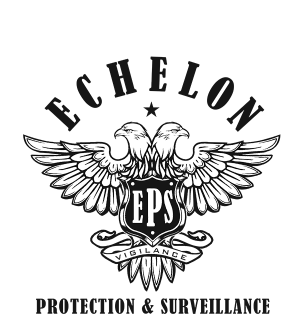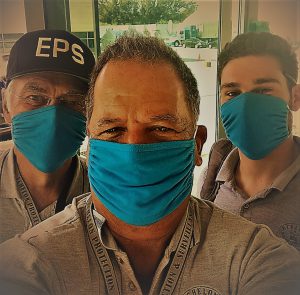You may be surprised to learn that the United States security guard industry is comprised of over 1.2 million people, but there are no statistics available on how many have died due to Covid-19. However, according to the Office for National Statistics research, security guards in the U.K. (specifically males in this study) have died at one of highest rates of any profession.
It’s interesting to note that even with all the inherent risks, security guard work is still sought after because it remains a steady industry and a good road to a decent paycheck. No matter what the national climate –businesses depend on security guards to stop, deter and deescalate unwanted or illegal activity. Although public security and private protection is typically underappreciated,the pandemic and civil unrest have highlighted the essential role security guards play in the hierarchy of public safety and law enforcement support.
Security guard work isn’t easy, although It’s sometimes tedious with shifts on nights and weekends and assignments that are subject to change weekly. The best guards are flexible, reliable, alert, follow directives and practice good common sense.According to the U.S. Bureau of Labor Statistics, security professionals often work without benefits at an hourly rate of $12.00 -$15.00. In 2019, security guards earned a median $29,680 annual wage with some positions offering health benefits and higher hourly rates from $15.00 to $25.00 for specially certified guards. In short, the security and protection industry is experiencing a hiring boom that has created over a hundred-thousand jobs over the last year, with the largest security companies leading the way.
The hiring frenzy is fueled by big businesses and national chains that don’t want their own untrained employees confronting customers about mask-wearing and social distancing. As clashes between personnel and patrons became common place, the United Food and Commercial Workers International Union, requested that businesses institute safety measures, including hiring contracted guards to implement compliance control. During the pandemic, security guards have been requested to act as per say public health officers law enforcement, often without having the experience or actual authority to do either.
For liability reasons, guard training and protocols often focuson what not to do, including no physical contact unless it’s self-defense. The most buttoned-up security companies train their guards in public safety andthe management of aggressive behavior, but many less professional security companies don’t. The best strategy to limit everyone’s liability is to develop clear directives for guards to enforce the client’s policies and call local police as backup as needed. When you consider all these on-the-job security challenges and add in extended unemployment and stimulus checks, it’s no wonder security companies continue to struggle with recruitment and industry turnover is so high.
Before the pandemic, a security officer’s main duties included, front desk posts, property patrols, directing deliveries, preventing vandalism, and deterring loss prevention.During a pandemic,a security presence is badly needed in retail, construction, property management and other industries for compliance of public health regulations such as wearing a mask and social distancing.
While there have been no national numberson instances of security officers attempting to enforce pandemic protocols, there have been many documented accounts of violent and deadly encounters with anti-maskers, Covid hoaxers, and virus-related conspiracy theorists. Unfortunately, many security guards find themselves at the center of a culture war where they risk infection, plus violent extremism. To help mitigate these additional risks, states like Pennsylvania have introduced legislation making it a felony to assault any employee tasked with Covid compliance enforcement.
With all that security officers must worry about and navigate every day, it’s time to give them more respect, a living wage, and a little compassion when you encounter them in public. Remember, they’re on duty to at the business owner’s request to keep their customers and property safe and secure.



